FAQs
FTVM/IMA Frequently Asked Questions
|
Collapse
What are the basic production classes I should take?
FTVM 130 - Film and TV Production Basics
FTVM 131 - Cinematography
FTVM 122 - Acting and Directing
FTVM 111 - Studio Audio Production
FTVM 112 - Film Audio Production
FTVM 110 - Audio Performance
How long has the program been around at Valley?
Since 1962, then it was known as Telecommunications.
Do offer classes in documentary and journalism?
Yes.
FTVM 133 - Broadcast News
FTVM 134 - Sports Broadcasting
FVM 198 - Media Practicum
What kinds of projects can I expect to make?
Short films, documentaries, feature films, TV Shows, web series, live broadcasts,
and music videos.
How many film classes a semester should I take?
If you’re working towards a degree, plan on at least 2 courses if full-time and 1
if part-time. If you’re just working on a certificate and you’re full-time you can
take up to 5 classes.
How do I develop an Ed. Plan?
After reviewing he catalog for the FTVM department and talking with the faculty chair
set up a meeting with the counselor to create your education plan.
How do I schedule an appointment with counseling?
You can schedule appointments with counseling via their website.
When are Internship applications available?
Internship applications are available at least once a year, starting in the spring
of each academic year. You can contact the department Career Specialist Sarai Maldonado
for all career service information at smaldonado@valleycollege.edu.
What internships are available?
The department, along with KVCR (the on-campus broadcast station and PBS affiliate),
has up to 8 internships available that focus on a variety of film, tv, and media production
needs, such as camera operator, technical direction, radio production, and post-production.
The department Career Specialist can also help you find other internship opportunities
throughout the region.
How do I become qualified for an internship?
You must complete at least two of the following classes, FTVM 110, 111, 112, 114,
122, 130, 131, 132, 133, 134. And be enrolled as a full-time student at SBVC.
Where have some graduates of the FTVM department ended up?
Many have transferred to four-year universities such as UCLA, USC, CSUN, CSUSB, CSULA,
and CSUF as well as gained career positions with Disney, Viacom, ESPN, and PBS.
Which classes will transfer?
All classes with a distinction of 100 or 200-level courses transfer to at least a
CSU.
What are certificates?
Certificates are intensive programs on various aspects of film, television, and media
production. Very often, they are under 4 classes, and in some instances, you may finish
a certificate along with a degree at the same time.
What general ed classes should I take?
First, you’ll want to know if you intend to transfer right away or wish to pursue
career options after school.
Once you know that, you’ll want to reference one of the following SBVC GE, CSUGE, or IGETC.
In general, you want to complete what’s known as the Golden Four for the CSU:
Once you know that, you’ll want to reference one of the following SBVC GE, CSUGE, or IGETC.
In general, you want to complete what’s known as the Golden Four for the CSU:
- Written Communication
- English 101
- Oral Communication
- Comm 100, 111, or 140
- Critical Thinking
- Comm 125, English 102, Philosophy 102 or 103, or Read 102 or 104
- Math/Quantitative Reasoning
- For FTVM majors, we suggest Math 108 or 115
How many units will transfer?
Up to 70 units may transfer to a 4-year institution. You need at least 60 completed
units or an associate’s degree, to transfer.
How long can I checkout equipment?
Typically, you can check out equipment for up to 72 hours, usually between Thursday
afternoon to Monday morning. Please see our equipment page for more details
How do I declare FTVM as a major?
After applying to the college, submit a “Change of Major” form to Admissions and Records. Email your completed form to admissions@valleycollege.edu.
How do I add or drop classes?
You can add and drop classes in SelfService. Or if you want to start a class after the session or semester has begun you may
request an add code from the faculty.

